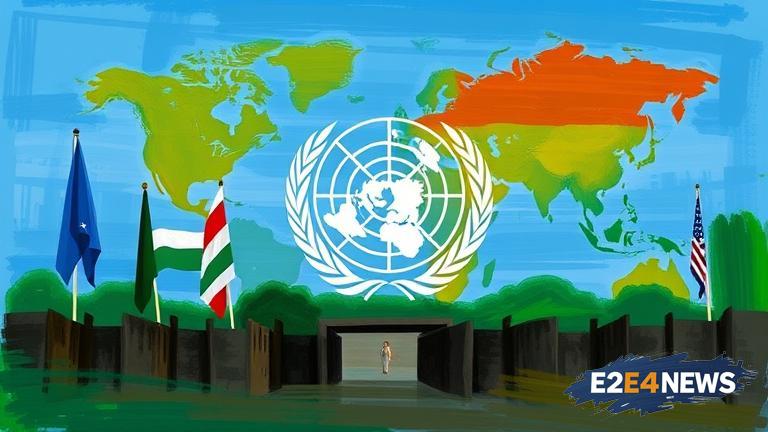The United Nations Regional Centre for Preventive Diplomacy for Central Asia (UNRCCA) has recently underscored the vital role that parliaments play in advancing peace, trust, and sustainable development in Central Asia. This emphasis comes as part of broader efforts to strengthen regional stability and cooperation. According to UNRCCA, parliaments are not only legislative bodies but also pivotal institutions in fostering dialogue, understanding, and cooperation among nations. By promoting peace and trust, parliaments can significantly contribute to creating an environment conducive to sustainable development. This includes addressing socio-economic challenges, ensuring human rights, and promoting environmental protection. UNRCCA believes that the active engagement of parliaments in these areas can lead to more effective and sustainable solutions. Furthermore, parliaments can facilitate people-to-people diplomacy, which is crucial for building trust and fostering a sense of community among Central Asian countries. The centre also noted that parliaments should be empowered to play a more significant role in conflict prevention and resolution. This can be achieved through capacity-building programs and workshops that enhance the skills and knowledge of parliamentarians in preventive diplomacy and mediation. Additionally, UNRCCA suggested that parliaments should engage more actively in regional and international forums to share best practices and learn from other countries’ experiences. The centre emphasized that this would not only enhance the role of parliaments in promoting peace and sustainable development but also contribute to the overall stability and security of the region. In line with the United Nations’ Sustainable Development Goals (SDGs), UNRCCA is working closely with parliaments in Central Asia to integrate these goals into national development strategies. This collaboration aims to ensure that the region is on track to meet the SDGs by 2030. The centre also recognizes the importance of youth and women’s participation in parliamentary activities, as they bring fresh perspectives and ideas that can enrich the decision-making process. To support this, UNRCCA is planning to launch initiatives that promote the inclusion of youth and women in peacebuilding and sustainable development efforts. These initiatives will include training programs, workshops, and conferences that provide a platform for young people and women to engage with parliamentarians and other stakeholders. In conclusion, the role of parliaments in advancing peace, trust, and sustainable development in Central Asia is multifaceted and critical. As emphasized by UNRCCA, empowering parliaments and enhancing their capacity to promote dialogue, cooperation, and sustainable development is essential for the region’s stability and prosperity. The centre’s efforts to support parliaments in these areas are timely and commendable, and it is hoped that these initiatives will yield positive outcomes for the people of Central Asia. The future of the region depends on the ability of its parliaments to work together towards common goals, and UNRCCA’s work is a significant step in this direction. With continued support and cooperation, it is possible to envision a future where Central Asia is a beacon of peace, trust, and sustainable development, thanks in part to the crucial role of its parliaments. Moreover, the international community has a stake in the success of these efforts, as a stable and prosperous Central Asia contributes to global peace and security. Therefore, it is essential for the international community to continue supporting UNRCCA’s initiatives and to work closely with the centre to ensure the long-term success of its programs. This collaborative approach will not only benefit Central Asia but also contribute to achieving the SDGs and promoting peace and sustainable development worldwide.





